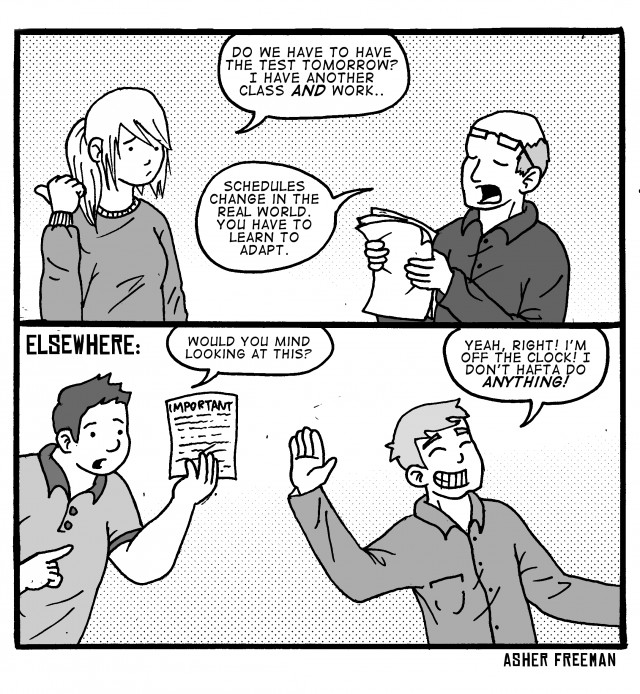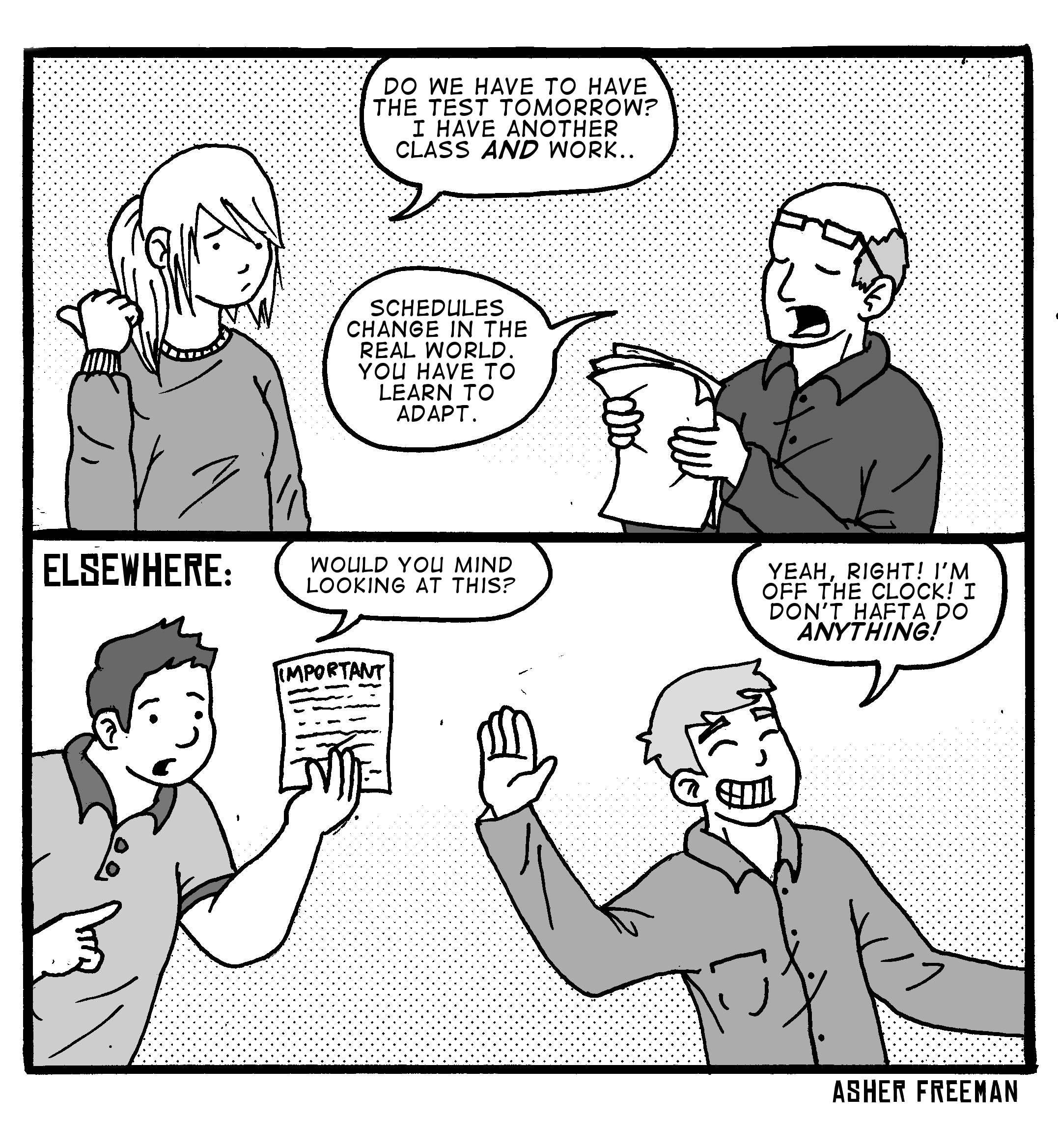 Students have to balance a variety of schoolwork, jobs, as well as several extracurricular activities in any given week. As a result, many students have very little time to do anything other than their to-do lists, such as sleep or spend any time with their friends and maintain relationships.
Students have to balance a variety of schoolwork, jobs, as well as several extracurricular activities in any given week. As a result, many students have very little time to do anything other than their to-do lists, such as sleep or spend any time with their friends and maintain relationships.
To add to students’ already busy and unpredictable schedules, professors have been scheduling several out-of-class activities that students are unaware of when signing up for the class.
For example, out-of-class tests early in the morning or late at night or required lectures outside of class in the afternoon, during times students have other classes.
It is extremely frustrating for students to have required activities at a time where students are in class or at work. Students often times are blindsided by this on the first day of class.
Out-of-class activities should either be made clear when students are registering for class or done away with completely.
The students may realize they can’t drop the class and graduate on time and are then stuck jumping through hoops to meet the requirements.
We concede professors have the authority to require students attend out-of-class activities such as lectures and tests.
We also understand professors may want to give students more time to work on exams or supplement their class time with lectures and speeches from speakers who visit campus for a brief amount of time.
However, students should know about what requirements will be asked of them before registering for the class.
This can be accomplished several ways. The easiest way would be for professors to add the time that they expect students to spend on lectures, screenings or tests to the listed class times.
This way, students have that time marked off on their Bearweb schedule and they are able to make alternate arrangements for work and other activities.
Another way students would be able to know about extra is to have old syllabuses online for students to peruse before registering. This is particularly beneficial because students could know what is expected of them by their professor not only out of class, but also during classtime as well, before they step foot into the classroom or input the course number while registering.
A final way to fix this problem is for professors to make use of the time they have in class to accomplish what they need to do, whether it is listening to a speech or taking a test.
Professors may argue that 50 minutes or one hour and 15 minutes isn’t adequate time to administer an exam.
As students, we generally don’t like the idea of long exams, and if other professors can condense their exams to 50 minutes or one hour and 15 minutes, why can’t all professors?
Professors could also potentially split an exam into two class periods. This would be especially helpful in more conceptual and mathematically based classes.
One class period could be devoted to testing theoretical concepts and another could be devoted to testing applied concepts. Some people may argue that what professors are doing is preparing us for the real world where nothing is ever predictable or laid out for us to understand, and for the majority of people, we would love to do everything that is asked of us and to never say no.
Class and work schedules are set well in advance. Having to factor in an extra class requirement is unfair for students who must balance activities such as a full load of classes, a part-time job, research and club meetings.
Out-of-class, overtime work is expected when we get into the real world, but right now, is it too much to ask for a little head’s up?






